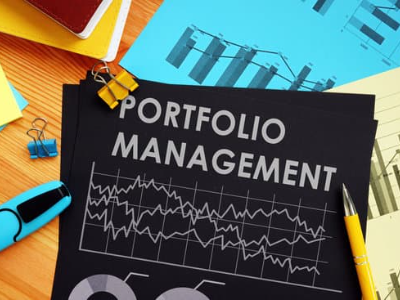Listen to this article
While the markets have reached all-time high, of late, it is showing a somewhat downward trend largely due to external reasons. However, on the domestic front, India looks strong with healthy GDP growth, Purchasing Managers Index (PMI) expansion and increased exports. How do you read the current state of equity markets and where is it headed in the medium term?
The markets have reached an all-time high in absolute terms. However, on a closer look, we are still in our last 10-year average range in terms of price to earnings (P/E) ratios, which means that the earnings have also increased with the prices. I am not worried about the prices but on whether the earnings growth will continue or not.
If the earnings grow, it does not matter what the absolute number of prices are. There are some pockets of the markets where the earnings are not there where a correction is possible.
When you are in a bull market, the valuations are high for all companies. But when the market corrects, it is the companies which are trading at premium valuations which receive the maximum impact. This is why we always recommend investors to do value-based investing whether it is a bull market or bear market. If the earnings are there, you give certain multiples to those companies and stay invested for a longer period of time.
Many people believe that the valuations across market capitalization are very high especially in mid and small cap. What’s your view on this?
Certain mid-cap companies are very expensive as of now and the corrections are also happening in these pockets of the market. In small caps, the SME (Small and Medium Enterprises) market is very expensive.
But along with them, there are also good companies available in the Rs. 5,000 – Rs. 15,000 market cap range at a very good reasonable valuation. The P/E average for small caps in the last 10 years is 19 and most of the companies are in that range. It is not difficult to find 10-15 reasonably valued companies for a PMS portfolio.
Equity markets are scaling all-time highs. How should wealth managers deal with lumpsum inflows?
Wealth managers should look to identify good fund managers for different types of investment like value, growth, large cap, small cap and accordingly advice their clients based on their risk appetite.
I normally advise my investors to allocate 20% of their portfolio to small cap where they can generate alpha and the rest 80% in large and mid-cap where they can expect reasonable returns. Wealth managers should look at the risk appetite of investors and accordingly allocate their assets.
Equity PMSs and Cat III AIFs are similar to MFs. Then why do you think that PMS and AIF offer diversification to investor portfolios?
PMS are more customized and focused while AIF and mutual funds have their model portfolio and restrictions. If anyone wants to do focused, concentrated investment, they should go for PMS.
There are many strategies in PMS. How can wealth managers shortlist a scheme for their clients?
HNI clients generally look for a more focused and customized approach. They are risk takers and expect high returns. So, wealth investors should consider the risk appetite and return expectations to choose a PMS scheme.
How do you see PMS getting affected due to the introduction of the new asset class?
The new asset class is aimed at upper middle-class investors who have not yet reached the level of PMS and have gone beyond mutual funds. But PMS is still the best choice for HNIs. They may invest in the new asset class if it offers some unique investment opportunities and better returns. But India is a very big market, there are many kinds of investors with varying needs. So, I don’t see these two products competing with each other.
Many experts say that equity PMS is no longer attractive due to a hike in taxation rate. They say that the new taxation will eat up a major portion of investment returns. On the other hand, debt PMS will become more attractive considering the taxation of listed bonds. What’s your view?
Some PMSs have high churn which are getting hit from the new tax regime. PMS schemes that do long term investment will not get affected by the new tax regime. According to our data, if an investor invests Rs. 1 crore for 10 years at 25% IRR, the post-tax IRR would be 23%, which is similar to what they will get in mutual funds too. However, if you invest this amount in a high churn PMS scheme, the post taxation IRR might be around 20%. The incremental cost in such high schemes will eat up the returns.
As far as debt PMS is concerned, these schemes will not generate such returns so equity PMS still remains the better option.








